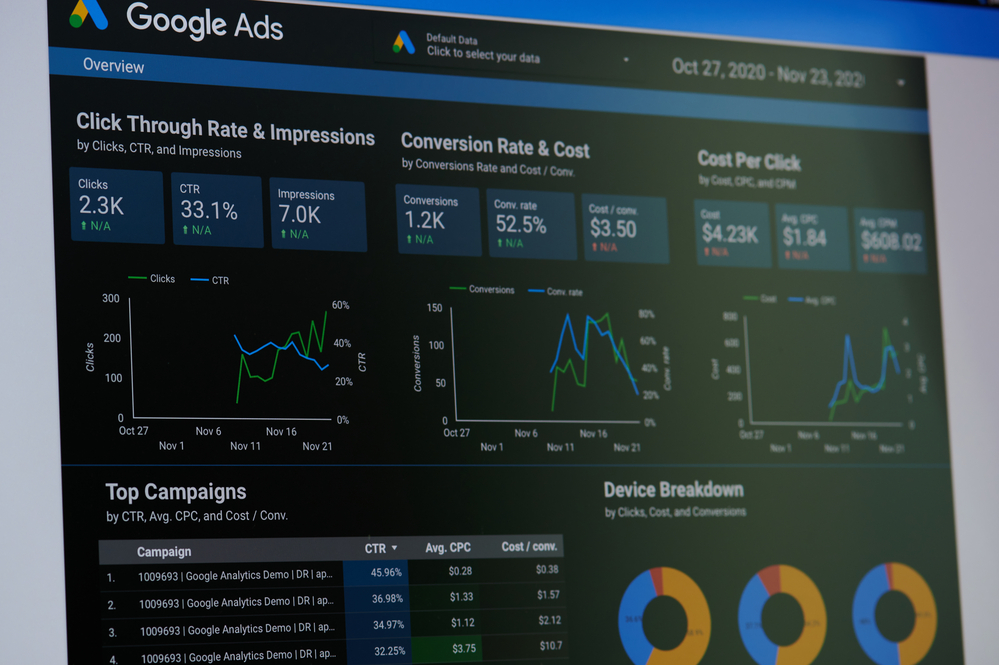Want to learn more about AI? Our on-demand series, Piloting AI For Marketers is a great place to start.
Contrary to what you might have heard, artificial intelligence (AI), can be used by your small business to reduce costs and boost revenue.
AI can transform the way you run your business.
Contrary to traditional tools, AI technology can analyze data on a large scale and make accurate predictions. These predictions can answer business-related questions and improve outcomes. Questions like:
- What are the consumer’s wants?
- What type of content are prospects interested in?
- What can you do to increase sales with your current customers?
- There’s so much more.
This power was historically only available to large companies that had huge budgets or datasets.
In the past few years, things have dramatically changed.
Small teams or modestly sized companies can now adopt AI tools and use cases without breaking the bank.
The AI tools and use cases cover areas such as product and service delivery and finance.
It’s not impossible, we have done it. We are a small company just like yours.
Marketing AI Institute is a small business. We’ve still spent many years adopting and researching AI technologies that have reduced our costs. With a limited team and budget, we’ve been able to achieve this.
This post contains everything you need to know about AI and how it can be used by small businesses.

Artificial Intelligence for Small Business 101
This is an easy, non-technical method to learn AI.
It’s important to understand what AI is before we get into tools and use cases.
You can learn AI quickly, no matter your background. You don’t have to be an expert in AI before you can start using it. It’s not necessary to be an expert in AI.
You need to know that we are not talking about one technology when we talk about “artificially intelligent”.
AI is a term used to describe a wide range of technologies with varying levels of maturity. Many very different technologies are called “AI”, just as we refer to many different software tools.
The term AI has a meaning. This is how we say that the technology you’re using today differs from and is smarter than traditional software.
You need to know how AI differs from the software that you are using today and is smarter.
All of it comes down to machine learning. Machine learning is part of AI and the technology behind AI’s power.
AI is capable of learning and improving on its own when it uses machine learning. Human specialists train an AI tool on data. The AI tool knows to produce a desired outcome using the data. It is then given new data to work with, and it uses what it has learned to reach the desired outcome. The AI tool will learn from its past actions and improve on them in the future.
This is a great example of Machine Learning in action…
Amazon recommends products to its customers using AI and machine learning. Amazon’s AI was trained using data collected from millions of customers and millions of transactions. It has learned which products people buy in tandem (the “You may also enjoy” feature). Amazon’s AI improves its recommendations every time you buy or do not buy according to the recommendation.
This is just one example of AI’s power.
You should also know that AI is something you can start using right away. No data science experience is required. It is not necessary to have a team of software developers or machine learning engineers. It is enough to have a business challenge you’d like to resolve or an opportunity you would like to take.
We all know what they are.
Let’s look at how AI could help your small business.

AI Use Cases in Small Businesses
AI can be used in a variety of ways by small business owners, including marketing, sales, and operations.
Automatic Newsletters
AI can automate the creation of a newsletter that you send to customers, partners, and prospects. It can source content for you from different online sources, then choose which articles to include in your newsletter–automatically.
What’s the best part? AI-powered email newsletters learn over time the preferences of each recipient and can send content that they are more likely to click and open. It does this all without your involvement.
Make Content
If you are creating content for your website, blog, or social media channel, then you should consider AI content marketing.
AI is now able to produce natural language which sounds as if it was written by a person. There are now dozens of AI-based tools available that will write content, whether it’s short or long, for you. This includes posts, product descriptions, and social media posts.
AI will also enhance your writing, either by editing it automatically or by suggesting the tone that is most appropriate for your material.
Ad performance can be predicted.
Your ads can be predicted to perform better before they are even launched using ‘s AI.
AI-based tools can identify the most successful ads, audiences, and advertising campaigns. These tools will then suggest how you can structure your ad to get the best results. These tools will even suggest which images and words work best for different audiences.
Enhance Customer Service
AI chatbots have become a popular way to converse automatically with clients who are looking for help.
The bots are so advanced that the customers don’t even realize they’re talking with a robot. They make offering immediate service to a large number of customers much cheaper and easier, even with a small staff.
Follow up with leads
Conversational Artificial Intelligence will also be able to follow up on your leads.
AI can now follow up with leads via text messages, emails, or website chat. The AI tools can ensure that no lead is lost and they have genuine conversations with them to qualify and nurture the leads.
AI bots can then transfer leads from humans to human agents when the right time comes.
Easy Accounting
AI can make small business accounting simpler. AI can answer your questions regarding accounting data so that you do not have to dig through spreadsheets.
AI can also learn to tag and organize your financial information over time, automating what would otherwise be a manual task that you’d have to perform yourself or pay someone else to complete.
Data Analysis: Get more insights from your data
AI Analytics Tools are a great way to better understand your site’s data.
The tools will help you answer questions that are common about the data on your site, uncover insights humans may miss, and build models to attract more customers.

AI Tools for Small Businesses
Here are a few AI tools that are affordable and easy to use for small businesses.
AI for Accounting
Xero is an accounting package that utilizes AI for automating basic accounting tasks as well as forecasting cash flow.
AI for Advertising
AiAdvertising
AiAdvertising is a cloud-based Artificial Intelligence-as-a-Service (AIaaS) advertising platform that eliminates the guesswork in advertising and connects advertising investments to financial outcomes.
AI for Content Marketing
Frase
Frase, an AI-powered bot, responds to questions from site visitors by recommending the best content for their questions. Frase uses the questions you ask to create better content for search.
Grammarly, an AI-powered writing tool, automatically corrects grammar and improves writing. It also offers suggestions on the tone and language you should use.
HyperWrite
HyperWrite, a writing assistant AI that writes content in the short form for you.
Jasper.ai, an AI-powered tool, will write your social media content, blog posts, and website copy for you.
AI for Customer Service
Zendesk is a leading customer service platform on the market. The platform has an AI assistant who can answer customer service queries.
AI for Email Marketing
rasa.io
You can personalize your newsletters with AI by using rasa.io. This will increase the open rate and engagement of emails.
Artificial Intelligence for Sales
Drift
Conversational AI, or Drift, allows you to have personalized conversations at the perfect time with prospects and clients.
Exceed.ai
Exceed ai is a conversational AI platform for marketing that uses two-way emails and chats to engage leads and help you set up more meetings with qualified prospects.

How to Start Using Artificial Intelligence in Small Business
Now that you have the AI tools and use cases, it is time to implement AI into your business.
What is the best way to do this?
These steps will help you find the best use of AI for your business.
- List everything that you do. List every responsibility you have for a day, a week, a mont, or if it’s yearly, quarterly. You can include both large and smaller tasks.
- Estimate the time required for each task. Write down the average time you estimate each task will take. Make your best estimate. No need to think too much about it. It’s how much time the task will take over your specified period. When listing daily tasks it is the time taken in one day. It’s the time taken to complete a quarterly task. Etc.
- List the tasks in order. Order your list by descending time estimate, starting with the longest task.
- List the three most important tasks. This is your AI start-up use case. AI can be used to improve their efficiency, allowing you to save the maximum amount of time. You can also use AI to enhance their results, allowing you to get more ROI for your time.
You can start by searching for your use case (“AI for [insert use case here]”) on Google. You can easily Google the use cases you have created (“AI for [insert your use case here ]”).
When you are looking for tools, don’t hesitate to contact companies and ask them about their AI capabilities.
You’ll soon be able to use AI as a professional in your business.